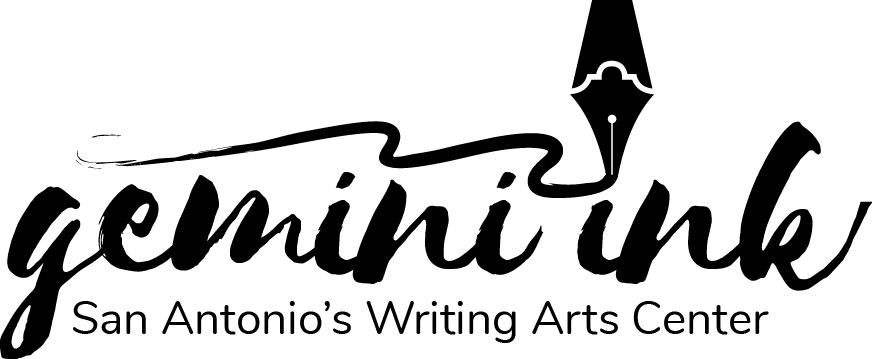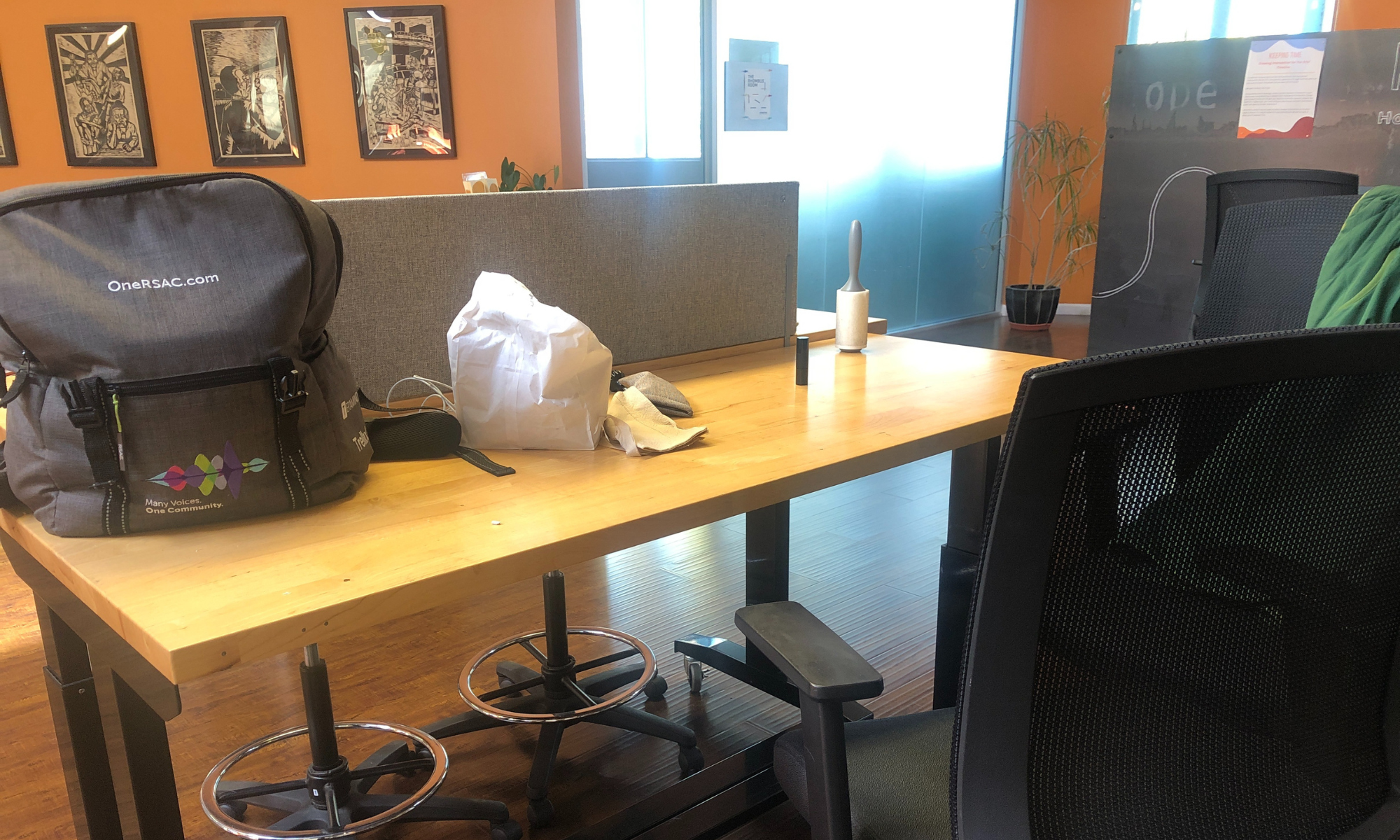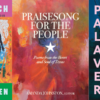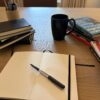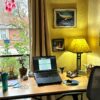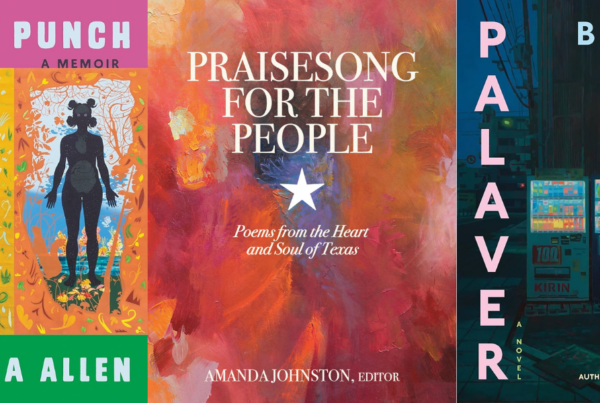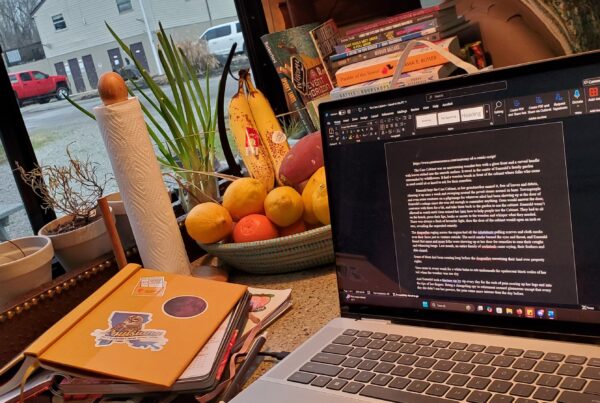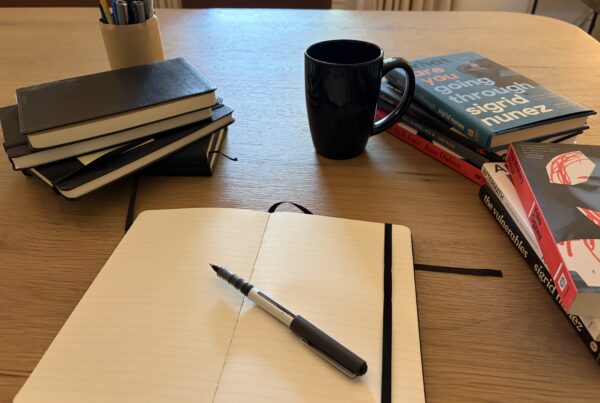The Writer’s Desk features the desks and writing practices of Gemini Ink faculty, visiting authors, teaching artists, volunteers, students, interns, staff, partners and more. Receive new posts in your inbox by subscribing to our newsletter at bit.ly/geminiinknewsletter.
It’s a pleasure to spotlight Lyzette Wanzer, whose work as a writer and teacher continues to shape conversations around literature and equity in publishing.
Describe your first writing desk. How is it different (or not) from your current writing desk?
I don’t write well a home; too many distractions and temptations. I write at several co-working spaces: a writers’ collective of which I am a member, an arts organization that offers free coworking space as a perk of sitting on their board, and a private-member library. I circulate through these spaces every week, on different days. So I don’t have a single writing desk.
What’s a book or movie that you can watch over and over again and not get tired of?
Movies: Gentleman’s Agreement (1947), The Gazebo (1959), The Omen (1976, the original with Gregory Peck), Rosemary’s Baby (1968), Shutter (Thai film, 2004).
Do you like things to be carefully planned out or do you prefer to just go with the flow? Does this also apply to how you lay out a story?
In life, I like things planned out as much as possible. But in writing, I don’t follow a plan. I never outline. I start with whatever scene or chapter comes to me first, and work from there. If it’s fiction, I still compose that longhand in a journal before I can move to the computer. Other genres I can compose directly on the laptop.
What habit do you have now that you wish you had started much earlier?
Using Scrivener to write longer works, such as books or extended essays. That program makes my life so much easier, especially for any nonfiction pieces.
What’s the most interesting thing you’ve heard or read recently?
Two books: J.M. Coetzee’s Disgrace and A Civil Action, by Jonathan Harr. I found Coetzee’s book in the Montalvo Arts Center’s library while I was doing a residency there a few months ago. Harr’s book, a nonfiction investigation of a water-contamination case, won the National Book Critics Circle Award, and got me hooked on tort litigation cases. Both books were page-turners and hard to put down.
Share some of your best practices for good writing.
Good writing stems from good, frequent reading, keen observation, attention to the less-sexy aspects of putting words down (proper grammar, punctuation, and usage), maintaining a thick skin, and being willing to reach outside of your comfort zone, at least every now and then.
What is your next project?
I’m working on my second book, for which I’ve already begun shopping around the proposal. It’s called Building a Career as a Literary Artist of Color. This project extends the work I began during what I call the 2020 Summer of Racial Reckoning, in the wake of the Breonna Taylor and George Floyd assassinations. I designed a six-week Professional Development for Writers of Color workshop that summer. The workshops proved popular, and I continue to offer some incarnation of them now, alongside my other workshops. This workbook will provide an empowering, vital course that addresses the practical concerns of developing a literary career as an aspiring BIPOC writer. The resources, strategies, and tools I share in the class are specifically geared for us. In a #PublishingSoWhite industry that is still 85% white, writers of color do indeed have differentiated concerns, tactics, and approaches they should use.
If people want to learn more about your work, where should they go?
They have choices! To learn more about me as an author, visit www.lyzettewanzermfa.com, my LinkedIn profile at www.linkedin.com/in/lyzettewanzer, or my Authors Guild page. Find info about My Muses & Melanin Fellowship Program at musesandmelanin.carrd.co, and details about my book, TRAUMA, TRESSES, & TRUTH; Untangling Our Hair through Personal Narratives.
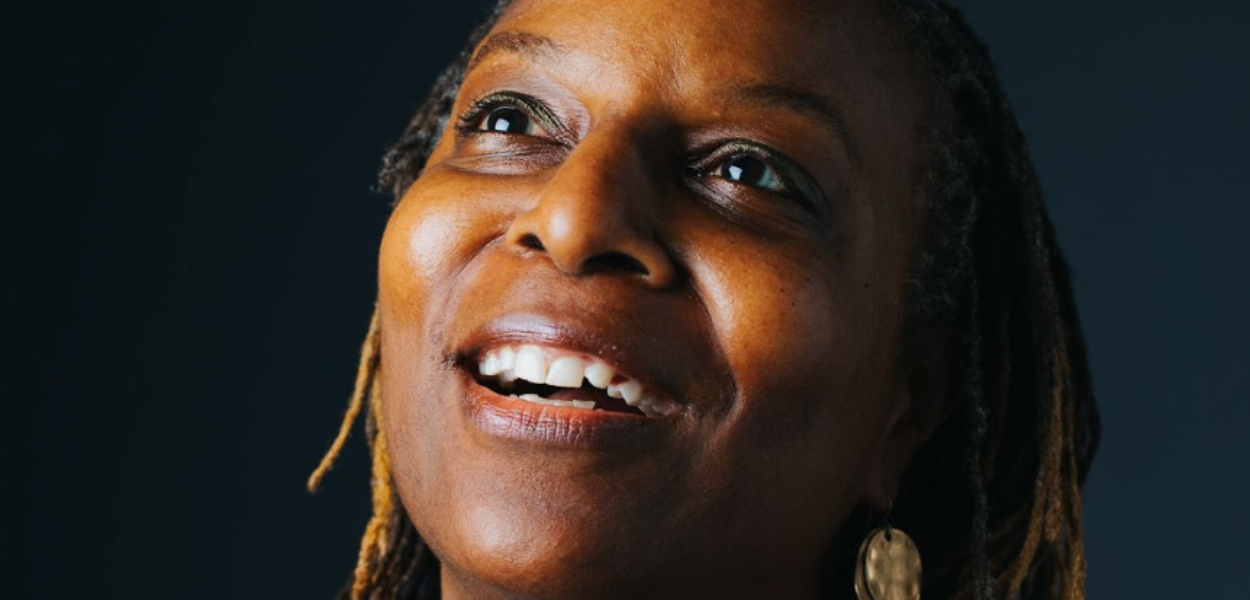
Lyzette Wanzer is a San Francisco writer, editor, and writing workshop instructor. She holds an MFA in Fiction from Mills College. A flash fiction connoisseur and essay aficionado, her work has appeared in Callaloo, The Los Angeles Review, Pleiades, The MacGuffin, Flashquake, and others. She is a contributor to Lyric Essay as Resistance, The Chalk Circle, Civil Liberties United, and 642 Tiny Things to Write About. Lyzette presents at conferences including AWP, CEA, Litquake, and the San Francisco Writers Conference. She judges literary contests in nonfiction and intercultural essay categories.
